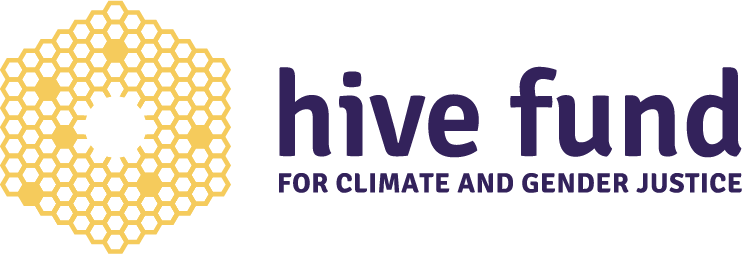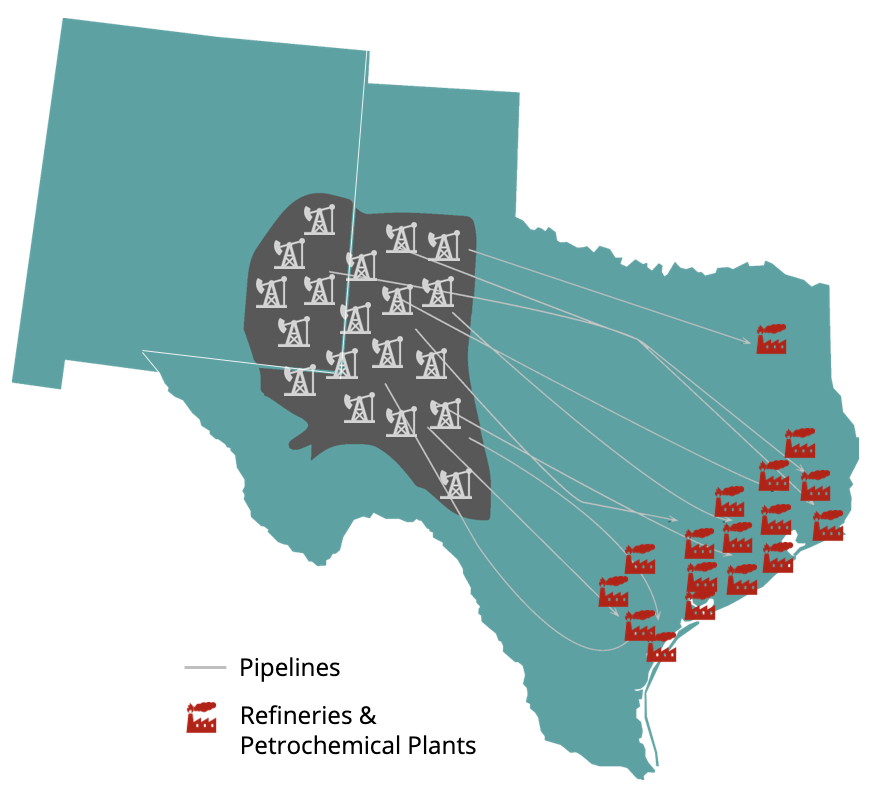Gulf South Progress Is Key to Global Climate Success
During the recent COP summit in Glasgow, 11 governments committed to end new oil and gas extraction and plan for a just, equitable, and managed phase-out of all existing oil and gas production; nearly thirty national governments committed to end financing of fossil fuels, using these funds instead for sustainable, resilient, and inclusive economic development; and a group of foundations pledged $220 million to reduce methane emissions. These agreements demonstrate growing momentum to end the era of oil and gas while simultaneously speeding up the transition to a more equitable and regenerative economy. But these ground-breaking goals cannot be achieved without increased support for groups on the frontlines in the Gulf South.
Together, Texas and Louisiana emit nearly 20% of all US global warming pollution--nearly half of which comes from oil, gas, and petrochemical industries. This locally toxic and globally planet-warming pollution is on track to increase dramatically if an impending wave of nearly 200 highly-polluting new oil, gas, and petrochemical pipelines, refineries, processing plants, and export facilities are allowed to be built. Most of these facilities are slated for Black, brown, and Indigenous communities along the Gulf Coast where pollution levels are already intolerable. This proposed build-out would make the US the largest liquified natural gas exporter in the world, and will increase a wide range of fossil fuel exports from the Permian Basin in West Texas - the largest oil field on the planet and the largest source of methane emissions in the US. Stopping this harmful infrastructure and transitioning to a clean and equitable economy in the Gulf South will not only improve the health and safety of communities of color locally, but will also have momentous ripple effects globally.
Many funders shy away from supporting groups in Texas and Louisiana because they perceive slim odds of success. Only 2% of current US climate philanthropic funding goes to groups in these two states. However, in both states, the economy and demographics are fundamentally changing, opening up many different opportunities. Dynamic new leaders are actively pursuing these opportunities and already racking up successes. See the list of our Texas and Louisiana grantee partners here.
HOW Grant-Makers Can Make a Difference
Philanthropy can and must do better to support powerful change-makers in these states, many of whom are operating on shoestring budgets. We've heard from grantee partners and other frontline advisors that four key guiding principles can help make grant funding more impactful. Philanthropic funding should be:
Multipronged: Supporting many tactics that pull different levers of change
Multiracial: Intentionally disrupting the systemic racism that favors predominately white-led organizations
Multi-solving: Giving general support to remove traditional grantmaking requirements that force groups to work in single-issue silos or on specific projects
Multiyear: Giving organizations the security to plan for the long term and breaking the cycle of people of color-led groups receiving small, one-year grants
We Can’t Fix the Parts Without Treating the Whole
The Hive Fund supports ecosystems of organizations working many different angles of the problems and solutions to address both urgent needs and generational systems change.
Supporting Local Permit and Policy Campaigns
It’s no accident that most of the proposed industrial facilities are slated to be built along Texas’ Gulf Coast, near Black, Brown and Indigenous families who are triply impacted by racism, voter suppression, and environmental degradation. Organizations in these communities seldom receive sizable grants because their work is often deemed “too small” or “too local,” even as their local wins have global impacts.
Winning Example: In Brownsville, Sierra Club organizers collaborated with the Carrizo Comecrudo Tribe of Texas and other local leaders to contest three massive liquified natural gas (LNG) facilities planned for their area. All three were either halted or paused. One project, Rio Grande LNG, has been halted in part due to a sophisticated international organizing strategy to stop project financing, by partnering with Irish and French environmental groups to persuade financial backers to pull their support.
Increasing Civic Engagement and Protecting Democracy
Even as plant-by-plant fights continue, change won’t happen fast enough without the ability to consistently pull the levers of laws, regulations, and public finance. In a time when overwhelming public support for climate action comes up against the minority rule of climate deniers, conspiracy theorists, and those who profit from their power, we need a functioning democracy that works for its multiracial citizenry and delivers on its promise. Hive Fund grantee partners representing young people and Black, brown, AAPI, and Indigenous communities are using a broad array of civic engagement tactics to fight voter suppression, decrease the influence of dirty industries, hold decision-makers accountable, and organize for strong policies benefiting their communities.
Winning Example: Louisiana’s Power Coalition for Equity and Justice is a statewide civic engagement and base-building coordination table that works to shift power back to the people, advocate for equitable policies, and increase voter participation by building support structures for community activism. The organization’s integrated voter engagement approach has moved infrequent voters of color to vote at higher rates and has improved policy at the municipal and state level.
Communications and Narrative Change
Investing in groups that use culture, story-telling, and other forms of communication is a key part of an effective grantmaking strategy. These tactics help re-wire the public’s mental maps in ways that allow and encourage us to imagine a prosperous and just future that does not include fossil fuels. Changing how we see and understand the world can change our social and behavioral norms, getting to the root of these enmeshed systemic problems. Because climate philanthropy is often very academic, elite, and focused on quantitative data, we funders often devalue some of the most powerful drivers of change: relationships, awe, trust, identity, belonging, inspiration, and courage. The movements that win know how to deploy communications as one of multiple tools in their toolbox.
Winning Example: The Texas For All coalition (which includes a dozen powerful statewide organizations) built and tested a compelling narrative platform in 2021 to create a proactive vision that unites climate and environmental advocates with other movements. This platform is intensifying public demand for change by moving hearts and minds. Hive Fund grants to participating groups like Texas Freedom Network, Jolt Texas, and Texas Organizing Project allows them to work with and help lead this communications table, while a partnership grant to We Make the Future supports the Texas for All groups in adding narrative capacity via the organization’s signature Race/Class Narrative framework.
Collaborative Infrastructure
Ecosystems of groups and connected solutions need connective tissue, which philanthropy is uniquely positioned to support. Trusting relationships are a powerful form of infrastructure that require significant time and emotional investment. Funders can increase support for coordination tables, facilitators, conflict resolution and restorative justice practitioners, trainers, coaches, etc. — and also invest fully in the groups participating in the collaborations. Otherwise, the ones who most need to be at the table won’t be, because they simply don’t have the staff capacity to contribute.
Winning Example: The Gulf South for a Green New Deal movement formation in Louisiana created an infrastructure to connect more than 60 frontline groups. Thanks to better alignment, these groups were able to bring unified community voices, perspectives, and recommendations into the Governor’s Climate Task Force working group process in 2021. Thanks to years of work spent building relationships and alignment, GS4GND’s policy platform is gaining traction and groups are being trained to engage in policy and regulatory venues and related protest actions in 2022 and beyond, ensuring that those most impacted help center equity. A racial and gender equity lens on climate policies enables everyone to win faster and better: as people see the fruits of their efforts in tangible improvements in their lives and communities, organizations expand power and consolidate wins in virtuous cycles. And designing climate policies in ways that foster cross-racial solidarity makes solutions more durable and politics easier down the line.
Progress in Glasgow = A Move in the Right Direction
The agreements made around Glasgow demonstrate an increasing recognition of what it will take to achieve progress on climate. The Hive Fund and other allied partners are well-positioned to meet that challenge by supporting frontline leaders in one of the regions with the most potential to have a positive impact on our climate goals. The work already being done in the Gulf South — and the promise of what can be achieved through increased funding — is an exciting opportunity: one that can help transition a regional icon of oil and injustice to an exemplar of an equitable and clean energy future.


